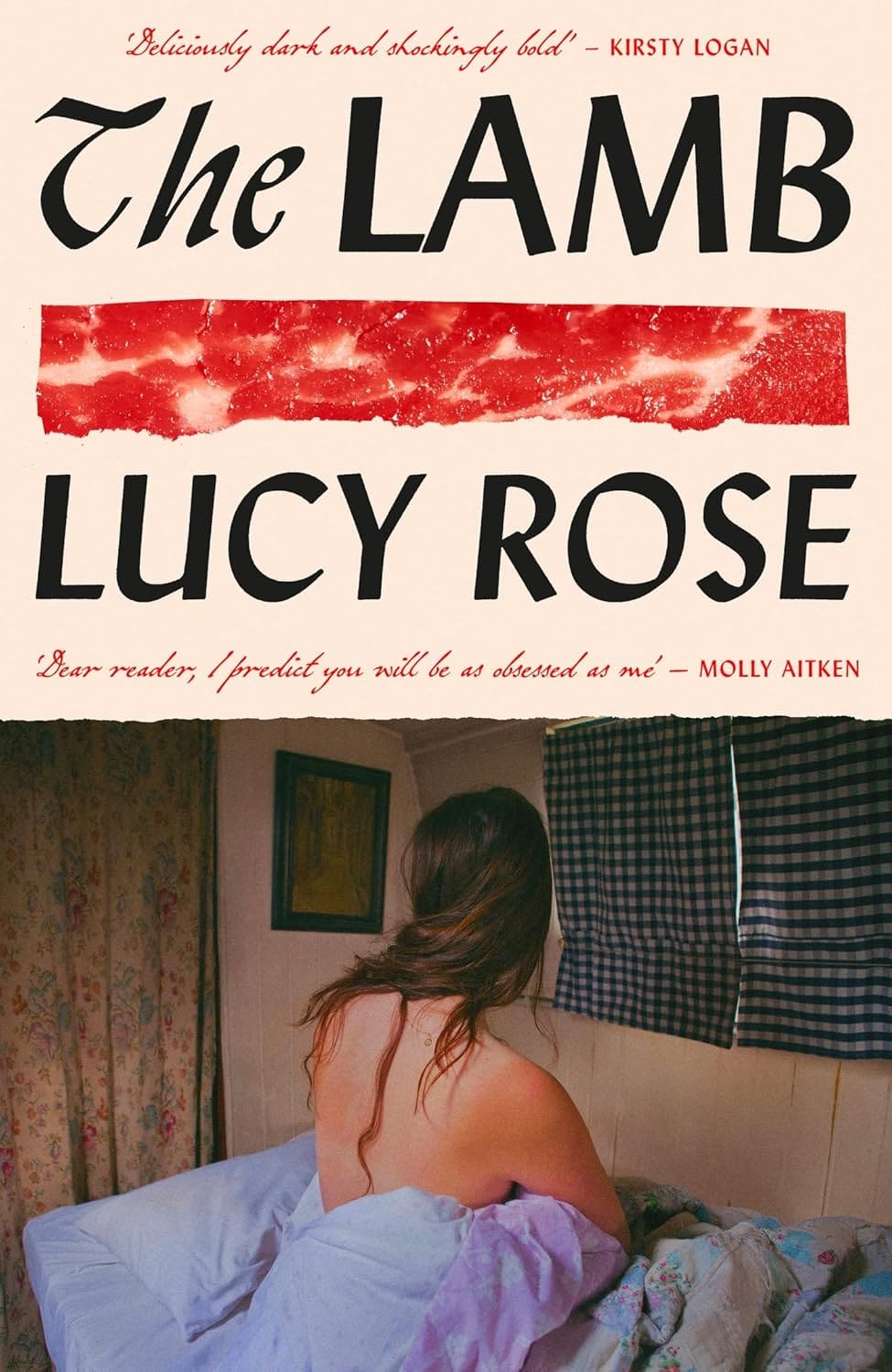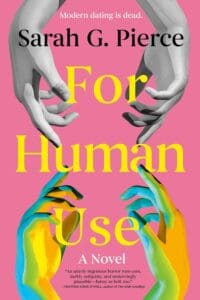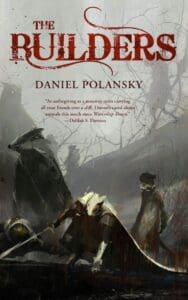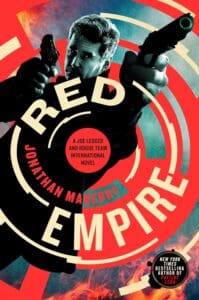
Synopsis:
Margot and Mama have lived by the forest ever since Margot can remember.
When Margot is not at school, they spend quiet days together in their cottage, waiting for strangers to knock on their door. Strays, Mama calls them. People who have strayed too far from the road. Mama loves the strays. She feeds them wine, keeps them warm. Then she satisfies her burning appetite by picking apart their bodies.
But Mama’s want is stronger than her hunger sometimes, and when a beautiful, white-toothed stray named Eden turns up in the heart of a snowstorm, Margot must confront the shifting dynamics of her family, untangle her own desires, and make her bid for freedom.
With this gothic coming-of-age tale, debut novelist Lucy Rose explores how women swallow their anger, desire, and animal instincts—and wrings the relationship between mother and daughter until blood drips from it.
Review:
When a novel garners as much online praise as Lucy Rose’s “The Lamb,” undeniably has- breathless tiktoks and reverent goodreads reviews- there’s always a risk that the expectations of the reader skyrocket, and become impossible to meet. Despite the frankly ridiculous proportions my hopes for “The Lamb,” ballooned to, Rose exceeded them. I understand that lots of people avoid books that are popular on the basis that they want to be different and quirky, and to that I raise you “The Lamb,” which is a reminder that often, books receive heaps of praise because they’re worthy of it. It’s obscenely good, I don’t know what to tell you. A perfectly prepared cannibal story, marbled with psychological and folk horror, and lovingly basted with blood, “The Lamb,” isn’t a book that you would think has so much to say about love, but that’s exactly what it’s all about. With an opening that would have had Daphne Du Maurier looking nervously over her shoulder, and prose that can only be described as swoon-worthy, to miss “The Lamb,” would just be silly.
“On my fourth birthday, I plucked six severed fingers from the shower drain,”
We follow Margot and her mother Ruth who live in the woods and eat strays. By strays, I am, of course, referring to people. Ruth often scatters nails and glass on the busy roads a mile or so away, and then it’s only a matter of time before the strays, cold and tired, come knocking. Of course, not every visitor to the cottage is a stray. First there’s the gamekeeper, who leaves his wife and child at home, and visits Ruth sometimes. There’s also Eden. She’s beautiful. Mama loves Eden, and Eden loves Mama.
Before we dive into the nitty gritty, or perhaps gristly would be more apt given the circumstances, I want to take a moment to heap some praise upon just how lip-lickingly sumptuous the “food,” in this book is described. It falls just short of me turning my family into kebabs, but nonetheless, I did have to remind myself that what was being seared, basted, breaded and practically falling off of the bone was in fact human. It’s just as mortifyingly mouth-watering as Chelsea G. Summer’s “A Certain Hunger,” in that respect. Of course, the prose is orgasmic beyond the dinners that Eden dishes up. It’s seductive yet raw, lush and lyrical and so full of melancholy. The entire book reads like butter and spits like oil- the last twenty percent in particular left me with third degree burns and whilst I like to think that I’m not someone who holds grudges, Lucy Rose I will never forgive you.
Perhaps that’s unfair considering that just as much this book is so dark (I mean, it’s about cannibalism) there’s also reprieve. Rose carves out space for moments of tenderness amidst the literal red mist, creating a world that whilst grim is far from loveless. Her bus-driver genuinely seems to care. He becomes some kind of emotional ballast, a balanced counterpoint to the instability of Margot’s homelife, which is anything but calm. The home-life in question is layered and uncomfortable, filled with moments that circle happiness, and are almost lovely before turning cold and sharp. Moments of warmth that quickly turn cold, sub-zero even. It is at its core, a mother-daughter tragedy. Ruth’s cruelty is never cartoonish, always, structural and clinical and learned. The emotional confusion of being raised by a mother who doesn’t love you, perhaps even resents you, is captured painfully well and with aching clarity.
A pseudo-fairy tale that feels destined to become a classic, the fact that “The Lamb,” is a debut is somewhat unbelievable- Lucy Rose is an offensive talent. Brit-folk horror with a bite (Rose is flying the flag for the North with her cleaver held high) “The Lamb,” is a truly evocative, viscera-slick novel that is grimmer than “Grimm,” yet so full of depth and never gratuitous in its violence. In conclusion, listen to the internet on this one.









Leave a Reply